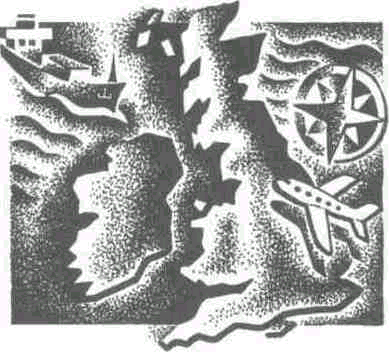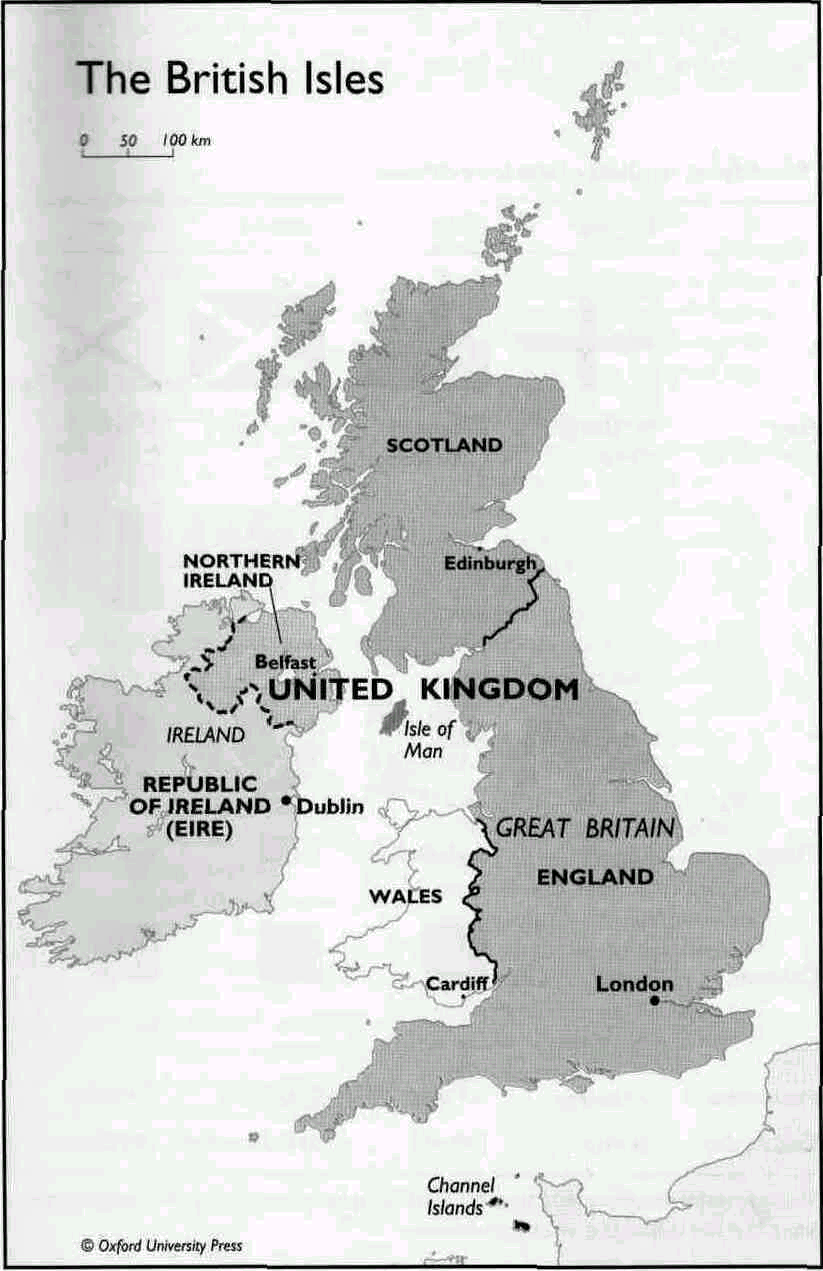
- •20 Food and drink 184
- •21 Sport and competition 191
- •23 Holidays and special 208 occasions
- •Introduction
- •10 I Country and people
- •12 I Country and people
- •14 I Country and People
- •2 History
- •16 2 History
- •18 2 History
- •It was in this period that Parliament began its gradual evolution into the democratic body which it is today. The word 'parliament',
- •20 2 History
- •22 2 History
- •24 2 History
- •26 2 History
- •28 2 History
- •30 2 History
- •32 3 Geography Climate
- •It was in Britain that the word 'smog' was first used (to describe a
- •36 3 Geography
- •38 3 Geography
- •40 3 Geography
- •Part of Snowdonia National Park
- •4 Identity
- •44 4 Identity
- •IrroubleatLllangybi
- •46 4 Identity
- •48 4 Identity
- •50 4 Identity
- •52 4 Identity
- •54. 4 Identity
- •5 Attitudes
- •58 5 Attitudes
- •60 5 Attitudes
- •62 5 Attitudes
- •64 5 Attitudes
- •66 5 Attitudes
- •In the history of British comedy,
- •6 Political life
- •68 6 Political life
- •70 6 Political life
- •72 6 Political life
- •74 6 Political life
- •6 Political life
- •78 7 The monarchy
- •The reality
- •84 8 The government
- •86 8 The government
- •88 8 The government
- •In comparison with the people of
- •9 Parliament
- •92 9 Parliament
- •94 9 Parliament
- •96 9 Parliament
- •100 10 Elections
- •102 10 Elections
- •104 10 Elections
- •I've messed up my life
- •Serb shelling halts un airlift
- •2 January is also a public holiday in
- •Identity 42—55
- •Illustrations by:

![]()
Contents
Introduction 6
1 Country and people 8
Geographically speaking • Politically speaking • The four nations • The dominance of England • National loyalties
2 History 15
Prehistory • The Roman period (43-410) • The Germanic invasions (410-1066) • The medieval period (1066-148^) • The sixteenth century • The seventeenth century • The eighteenth century • The nineteenth century • The twentieth century
3 Geography 31
Climate • Land and settlement • The environment and pollution • London • Southern England • The Midlands • Northern England • Scotland • Wales • Northern Ireland
4 Identity 42
Ethnic identity: the native British • Ethnic identity:
the non-native British • The family • Geographical identity • Class • Men and women • Religious and political identity • Social and everyday contacts • Identity in Northern Ireland • Being British
5 Attitudes 56
Stereotypes and change • English versus British • Multiculturalism • Conservatism • Being different • The love of nature • The love of animals • Formality and informality • Public spiritedness and amateurism • Privacy and sex
6 Political life 67
The public attitude to politics • The style of democracy • The constitution • The style of politics • The party system • The modem situation
7 The monarchy 77
The appearance • The reality • The role of the monarch • The value of the monarchy • The future of the monarchy
8 The government 82
The cabinet • The Prime Minister • The civil service • Central and local government • Local government services
9 Parliament 90
The atmosphere of Parliament • An MP's life • Parliamentary business • The party system in Parliament • The House of Lords
10 Elections 98
The system • Formal arrangements • The campaign • Polling day • Election night • Recent results and the future
11 The law 106
The police and the public • Crime and criminal procedure • The system of justice • The legal profession
Contents
12 International relations 113
The end of empire • The armed forces • Transadantic relations • The sovereignty of the union: Europe ' The sovereignty of the union: Scotland and Wales • The sovereignty of the union: Northern Ireland
13 Religion 121
Religion and politics • Anglicanism • Catholicism • Other conventional Christian churches. Other religions, churches and religious movements
14 Education 130
Historical background • Organization • Style • Recent developments • School life • Public exams • Education beyond sixteen
15 The economy and 141 everyday life
Earning money • Work organizations • The structure of trade and industry • The distribution of wealth • Finance and investment. Spending money:
shopping • Shop opening hours
16 The media 151
The importance of the national press • The two types of national newspaper • The characteristics of the national press: politics • The characteristics of the national press: sex and scandal. • The BBC • Television: organization • Television: style
17 Transport 162
On the road • Public transport in towns and cities • Public transport between towns and cities • The story of the channel • Air and water
18 Welfare 168
The benefits system • Social services and charities • The national health service • The medical profession
19 Housing 174
Houses, not flats • Private property and public property • The importance of ‘home' • Individuality and conformity • Interiors: the importance of cosiness • Owning and renting • Homelessness
20 Food and drink 184
Attitudes to food . Eating out • Alcohol • Pubs
21 Sport and competition 191
A national passion • The social importance of sport • Cricket • Football' Rugby • Animals in sport • Other sports • Gambling
22 The arts 201
The arts in society. The characteristics of British arts and letters • Theatre and cinema • Music • Literature • The fine arts
23 Holidays and special 208 occasions
Traditional seaside holidays • Modern holidays • Christmas and New Year • Other notable annual occasions
Introduction
Who this book is for
This book is for learners of English as a foreign language, at any level of proficiency from intermediate upwards, who need to know more about Britain. It will be invaluable to students on British Studies courses and to those who are studying British culture as part of a general English course. It is for all people who recognize that a knowledge of British life is necessary to improve their understanding and use of the English language as it is spoken in Britain.
How many times have you not fully understood a phrase in a British text and found that the dictionary did not help? How many times have you understood every word that a British person has said but not understood what he or she meant? In any society, writers and speakers leave some things unsaid or unexplained because they assume that their readers and listeners are equipped with the basic knowledge which comes from sharing the same cultural background. You may have reached a high level of proficiency in English, but find British people hard to understand because you lack this background knowledge. This book aims to fill in the gaps so that, when you encounter British writers and speakers, you are closer to being in the same position as an averagely educated British person would be.
Of course, it is impossible for you to put yourself in exactly the same position as natives of Britain. They have been sharing many, distinctly British, experiences and influences ever since they were born. Therefore, this book also looks behind the facts and figures, so that you can begin to understand the British approach to life in general.
What this book is about
This book contains all the basic information you need about the structure of the British political system and other aspects of public life. But it has more than that. Throughout the book, particular attention is paid to the attitudes of British people. Knowledge of these is very important because they are what 'colour' the language used by British people. For example, to understand the word 'Catholic' as used in Britain, it is not enough to know the legal position of Catholicism and how many Catholics there are; you also have to know something about the general place of religion in British people's minds and how different religious groups in the country feel about each other (see chapter 13). Because attitudes are so important, there

This is a book about Britain. But what exactly is Britain? And who are the British? The table below illustrates the problem. You might think that, when it comes to international sport, the situation would be simple - one country, one team. But you can see that this is definitely not the case with Britain. For each of the four sports or sporting events listed in the table, there are a different number of national teams which might be called British*. This chapter describes how this situation has come about and explains the different names which are used when people talk about Britain.
Geographically speaking
Lying off the north-west coast of Europe, there are two large islands and several much smaller ones. Collectively, they are known as The British Isles. The largest island is called Great Britain. The other large one is called Ireland ( The British Isles).
Politically speaking
In the British Isles there are two states. One of these governs most of the island of Ireland. This state is usually called The Republic of Ireland. It is also called 'Eire' (its Irish language name). Informally it is referred to as just 'Ireland' or 'the Republic'.
The other state has authority over the rest of the British Isles (the whole of Great Britain, the northeastern area of Ireland and most of the smaller islands). This is the country that is the main subject of this book. Its official name is The United Kingdom of Great Britain and Northern
|
|
England Wales Scotland Northern Ireland Irish Republic
|
|
Olympics
|
|
|
cricket
|
England Scotland Ireland
|
|
rugby union
|
England Wales Scotland Ireland
|
|
football
|
England Wales Scotland Northern Ireland Irish Republic
|
Politically speaking 9
Ireland although it is
usually known by a shorter name. At the Euro-vision Song Contest,
at the United Nations and in the European Parliament, for instance,
it is referred to as 'the United Kingdom'. In everyday speech this
is often shortened to 'the UK'. In other contexts it is referred to
as 'Great Britain'. This, for example, is the name you hear when a
gold medal winner steps onto the rostrum at the Olympic Games. The
stickers on cars ('GB') are another example of the use of this
name. In writing and speaking that is not especially formal or
informal, the name 'Britain' is used. The normal adjective, when
talking about something to do with the UK, is 'British'.
>
Crown dependencies
There are two small parts of
the British Isles which have special political arrangements.
These 'Crown dependencies' are the Channel Islands and the Isle of
Man. Each has complete internal self-government, including its own
Parliament and its own tax system. Both are 'ruled' by a Lieutenant
Governor appointed by the British government.

